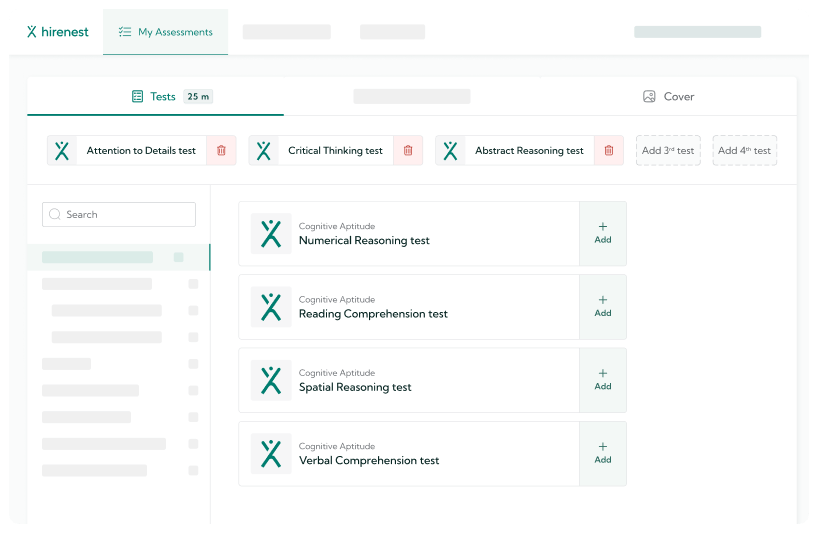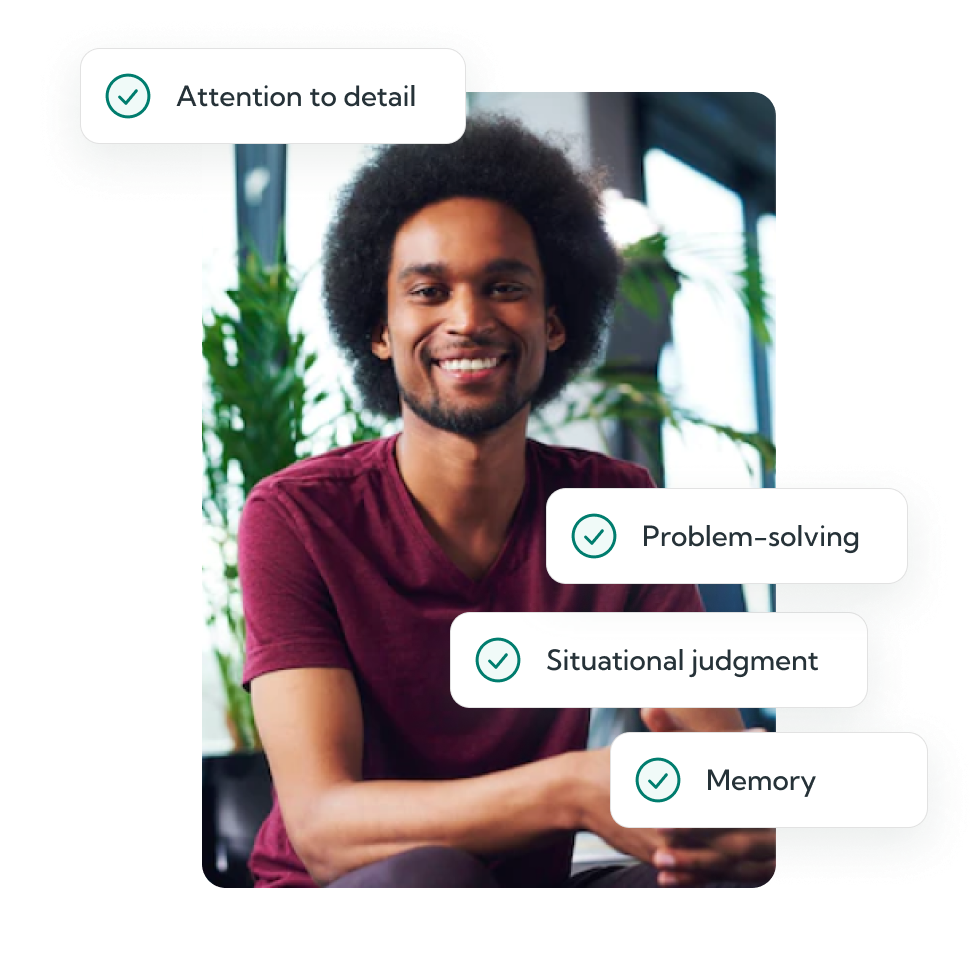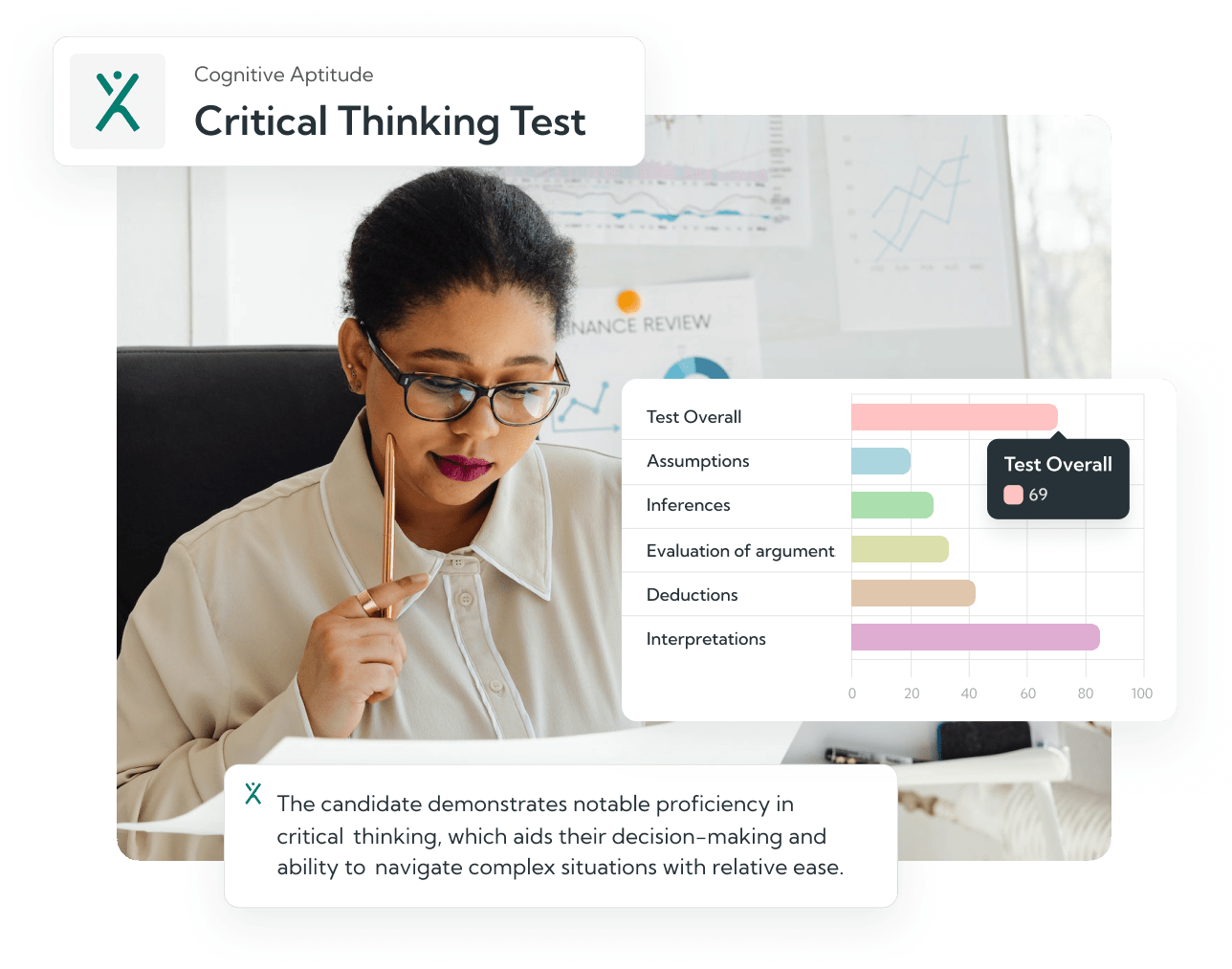Cognitive Ability Tests
Discover top talent with ease! Our platform uses aptitude tests to expertly identify high-performers for your company's success.
& explore our Aptitude Tests Library
5
Personality Profiling
42
Situational Judgment
8
Cognitive Aptitude

What are cognitive aptitude tests?
Cognitive aptitude tests are vital in the competitive job market, aiding employers in finding top candidates for roles. These assessments evaluate cognitive abilities such as problem-solving and logical thinking, helping gauge a candidate's potential in specific jobs. Tailored for particular roles or industries, these tests help organizations hire individuals with the necessary skills and aptitude to thrive in their work environment.

Hirenest Test Library
Measure your candidates on job skills, personality and fit
Sort by
Can the applicant create high-quality 3D models and animations?
How well can your candidates analyse new data quickly and logically and use it to solve unfamiliar problems?

Go way beyond resumes
and interviews with Hirenest aptitude tests
Expertly designed aptitude tests to predict job success, outperforming education, experience, and traditional interviews.

